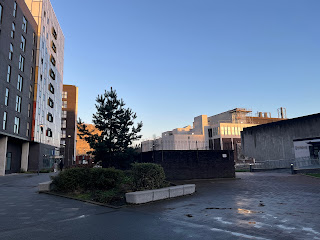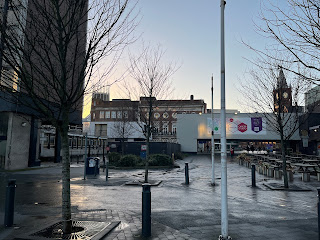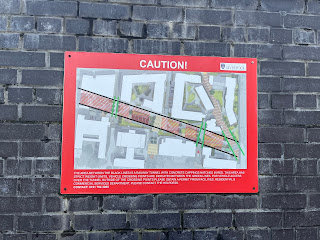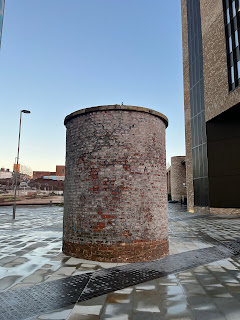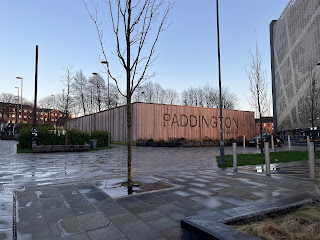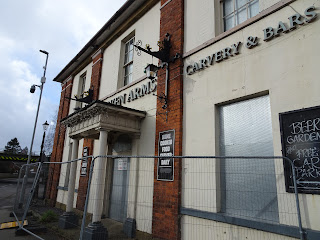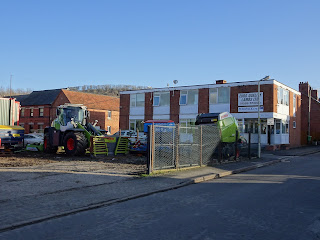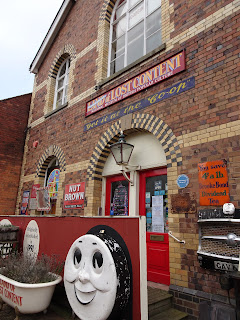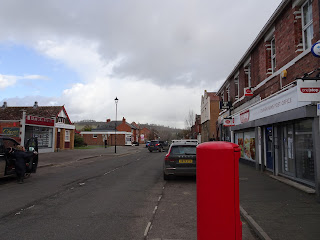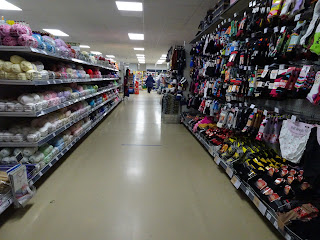I am a full, card-carrying member of the swathe of humanity labelled "Generation X". We're the last generation to have a handful of tv channels and the first to have computers in our home; we're the generation that embraced SAW and techno and grunge and Britpop. We grew up with Spielberg films and E-numbers and nothing to do. We're a generation that is, above all, riddled with cynicism and disdain and an ironic distancing of every experience. It was something we developed to cope with Thatcher and Reagan and AIDS and the threat of nuclear war hanging over our heads and all our parents getting divorced. We became tough.
I suffer from this affliction more than most. Every joyous event happens to me through glass. I watch it from outside, unwilling to commit until I've decided if this is something I will allow myself to enjoy. Every unfiltered moment of happiness is met with pursed lips; every emotional outpouring is greeted with a raised eyebrow. I am, in short, a nightmare.
It means that when I am told something will be beautiful and great, I'll blow my cheeks out dismissively and say to myself, "we'll see about that". I arrived in Church Stretton with my cynical faculties at maximum. I'd read, prior to arriving, that this was a lovely place. A gem in the Shropshire countryside. "Nicknamed Little Switzerland", one website told me. Yeah, yeah, I thought.
I left the station and cracked a smirk of superiority. Beyond the platform was a rough, badly tarmacked road, cracked and broken, lined with garages and workshops. Cars and vans broached the pavement while at the end of the street was a fast, unlovely A-road. Charming? I thought. This could be anywhere.
I crossed back over the railway line, past the town sign informing me it was market day, and something hit me. Perhaps it was the fine buildings, grand but not ostentatious; perhaps it was the steep hills rising up to form a picturesque backdrop. Perhaps it was the ginger cat that stepped away from the verge to beg for a stroke at my feet. Something infiltrated my brain and made me think, "oh no. This place is great."
Church Stretton, it turns out, lives up to its reputation. It's a thoroughly charming little market town, threaded around a couple of main streets, that oozes personality. It has a thriving community of residents; there was a two metre long notice board outside the post office, groaning under the weight of notices for support groups, events, clubs. Women's Circle? Sequence dancing? Gardening club? They were all here.
The High Street passed through an intriguing mix of buildings and styles. Most of the stores were occupied, which is a rarity in 2022, and small side alleys begged to be explored. The market square was filled with half a dozen stalls selling fruit and veg and cheese and soft furnishings - no knock off designer gear or dirt cheap kids rugs with a rough approximation of Peppa Pig on them. I ducked down one and found the parish church in its square of graveyard.
The street on the other side brought a library, with a visitor's centre, and a series of neat cottages. A woman came down the path of one as I passed, yawning: "Ooh, you're tired!" she laughed. She was dressed in serious country wear, stout boots and thick jumper and a gilet. I went to the bottom of the street, to "Cunnery Road" - a name that sounds like a particularly filthy euphemism - and doubled back onto the bottom of the High Street.
It wasn't perfect. The shops were mainly designed for expensive browsing rather than everyday purchases. There were more antique shops than anything else; the town's one shoe shop had a sign in the window explaining the owner was retiring, and I didn't see anywhere that sold everyday, normal clothes. You could've got yourself a nice silk scarf but if you wanted a new pair of pants you were out of luck, unless you went to one of the
two wool shops and bought the yarn to make your own. The hardware store had a window filled with ironwork statues; I doubt you'd have been able to get a drill bit there. There were food stores on the main drag but they sold artisan, organic, gourmet foods, the kind of shop that has a lot of shortbread for some reason. There was a supermarket, and you'll be unsurprised it was a Co-op, not one of those vulgar Tesco Metros, and it was tucked away round the back with a car park and a bus stop where you couldn't see it.
It's easy to be beautiful when you have money. It's easy to be charming when you don't have to really work at it. This is not to demean Church Stretton at all; I was absolutely taken with it. But the people here had disposable income and leisure time to enable them to make their town as pretty as possible without relying on cash-strapped councils or overworked volunteers.
Down a back road, past an abandoned 1930s garage that managed to look picturesque even in its derelict state, and round a village green with wide oak trees placed on it. A sign informed me that the three oaks commemorated the reigns of Edward VII, George V and George VI; Edward VIII was discreetly absent. There was a small seating area and I parked myself for a drink of water and a pasty from my bag.
Normally, of course, I'd walk to my next station from here. But Craven Arms was seven miles away. There were two ways to get there; either I could follow the A49 through the narrow gap in the hills - a busy road with few pavements - or I could walk to the top of the ridge and follow that over the top. Neither route seemed appealing so I'd be getting the train. It meant that I'd exhausted Church Stretton's attractions. I'd gone in one shop, a kitchen store kitted out like a traditional village shop with high wooden shelving, and one of the owners had fussily started playing with a display of hand-made cards near me in case I shoved a pair of tongs in my backpack without paying. Quite unwelcoming. There were cafes, but they were either busy or more foody than I wanted, not the kind of place you can sit with a single cup of tea.. And the pubs weren't open yet.
I checked my Ordnance Survey app and decided I could go for a
little countryside walk, just enough to take me round the town, just enough to fill the time. I headed up the hill past discreet villas tucked behind CCTV guarded fences, all built high enough to enable their living rooms to have a great view down the valley. There was a small gate
(warning: busy road) and then I was walking towards
Carding Mill Valley.
A cold wind barrelled down through the peaks and hit me square in the face as I followed the road. Either side of me, sheep nuzzled at steep hillsides, the grass too thin too properly cover the rock below. Bare trees shook as each gust struck them. My face became pink and pinched; I felt every chilly blast.
I realised, as I walked, how much I had missed this. Months of being locked in the house, moving from room to room, barely going out, had made me into a hermit. I am a total homebody; I love my little house, and I'm perfectly satisfied with the internet and a telly to keep me company. I hadn't really missed going out.
Now though; now I was feeling it throughout my body. The thrill of exploring again. The excitement of visiting a strange place, of walking down alien footpaths and not knowing where they'd take me. Seeing sights and views that were different to my own corner of the country. A smile spread across my face. My cynicism was really getting a beating.
I paused at the visitor's centre to use the coldest toilet in the western hemisphere then took a small side path away. There is a steep plateau here, the Long Mynd, which has a path running its length; it gives amazing views and is well worth the effort. I wasn't dressed for a hike - I was wearing jeans, for goodness' sake - no matter how tempting it was to walk up and up and up. I took one final glance at the sun bouncing off the hillsides.

Considering it was February, the path wasn't too muddy; the weather had been relatively good lately so the odd puddle was easily avoided. It hugged the side of the hill with grazing fields rising above me and then a sharp plunge downwards into woodland below. I had it to myself, but a mess of bootprints in the muddier sections showed me I wasn't wandering off into the unknown.
The path reached a low point beside a reservoir spilling its contents through a sluice gate and down into a stream below. I paused on the bridge for a moment to watch the water then followed it across, past an abandoned sheep pen, and to the bottom of a slope. I looked at it with a mix of confusion and disappointment. I was meant to go up there?
I scrambled. The surface was rough and loose; stones slipped from underneath me as I pushed on. I didn't slip but it wasn't dignified. I reached the top, sweating, short of breath, and paused for a drink. At least, I thought, it would be all downhill from here. And the view was great. I could see Church Stretton below me, suddenly tiny.
The path here seemed a lot less used; I guessed that most people took the other branch alongside the reservoir, the one that traversed the hills properly. There was a single abandoned shoe liner, the type you put in your walking boot to make the walk softer, dumped when it had rubbed its owner too much. A sheep haughtily watched me approach, rightly judging that I was neither a danger nor bringing food. I was only an irritation.
There was another branch in the path and I sighed. A check of the OS Maps app again; yep, I wasn't following the nice clear way in a straight line. Instead I made my way down a steep slope through a thick carpet of fallen leaves. My feet sank into them every time, a full inch of compost-to-be, and I clung to the fence as I walked to try and avoid sliding down. At the bottom, the leaves had gathered against the fence even more deeply. It was like walking through dun-coloured snow.
I shadowed the fence. Below me the hill dropped away into woodland, but here the trees were thinner, more open. It was still winter and so the bright sunshine could reach me through their bare branches. However, the openness also meant less protection. I reached a sprawl of fallen trees. They'd collapsed in the winds and crushed the fence beneath them, their roots exposed, a gaping hole where they'd once stood.

Climbing over them directly would've been too difficult, so instead I pulled myself up the bank to go round. Finally, the slip happened, the one I'd been expecting throughout the walk; I clattered down on my knees into the soft mud. It left brown marks all over my trousers, and dirt on my hands and under my fingernails. I muttered swear words to myself, while a part of my brain wondered what I'd do if I fell properly here on the hillside and broke something. Was it even worth calling for an ambulance out in the middle of nowhere? I may as well curl up and wait for the sheep to eat me.
I stopped, suddenly furious. I'd reached the point where the path turned down, towards the town again, and I needed to pass through the fence. I'd expected a gate or a stile but there was nothing. The Shropshire County Council arrows cheerily pointed down the hill but someone had "helpfully" repaired the fence here, blocking it up completely, and with a string of barbed wire over the top.
There was a narrow point in the corner where the fence hadn't quite reached. I hoiked one leg over, but stumbled a little with the change in levels, and toppled backwards; instinctively I reached out to grab something. The thing I grabbed was the barbed wire and a spike plunged into the palm of my right hand. I let out a single Freddie Uncle Charlie Katie and pulled my hand away.
Luckily, we live in a pandemic world. I had a bottle of Purell in my pocket and I squirted it into the bloody hole, feeling the sharp sting as the alcohol worked on the wound. It had stopped bleeding by the time I stumbled and rolled and clattered my way down the hill and onto the road again, emerging between two houses and no doubt looking like a dishevelled mess. I hoped nobody had been watching my undignified descent from their back window. If I end up on You've Been Framed, I want that £250, thank you very much.

The road back into town wasn't as charming as Church Stretton's centre, a lot of boring detached homes and bungalows behind hedges. After a couple of steps my Fitbit brrrd on my wrist; I'd hit 10,000 steps. I wasn't surprised. (The app also claimed I'd walked up 67 flights of stairs, which makes me think it's not really designed for country walking). By the time I'd reached the centre of the town the pubs had opened, but I felt too much of a state to visit them. Instead I walked straight to the station.
There was a bench under the footbridge and I tried to make myself more acceptable to polite society. I wiped myself down with a Wet One. I sprayed some deodorant and some Hugo Boss. I brushed off the worst of the dirt. By the time the train arrived to take me to Craven Arms, I was as presentable as I'm ever going to get. Which still isn't great if I'm honest. (Self-deprecation, that's another Gen X trait. I'm a cliché).


